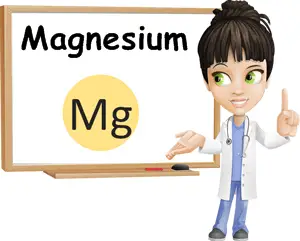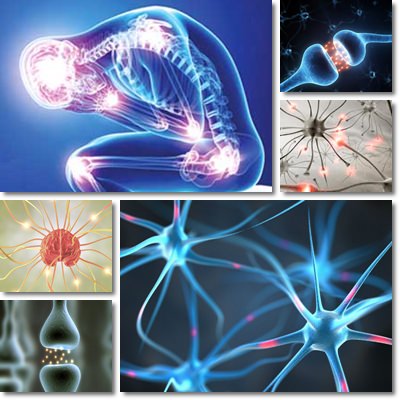While it may not sound like a big deal, magnesium is a deal-breaker for us. We need magnesium for strong bones, a healthy heart, strong muscles and to combat depression, reduce hypertension and prevent stroke. A sufficient intake of the mineral can simply turn our health around. As you may already know, magnesium is a dietary mineral of crucial importance for our health. Our body cannot produce it itself (as it produces vitamin K, for example).
As a result, our diet needs to provide us with a complete intake of the mineral so our body can perform vital biological processes. It is estimated that about 1/3 of people in the US are magnesium deficient. In developing countries, numbers are estimated to be much higher. Not having enough magnesium is significantly more problematic than we think because it can result in a variety of chronic medical conditions and we may even end up receiving medication for illnesses caused by nothing else than a perpetual magnesium shortage. Stress and bad lifestyle habits are the main causes of magnesium deficiency.

What causes a magnesium (Mg) deficiency?
Chronic stress
Nowadays everyone seems to be under a lot of stress. Whether it’s because you have family problems, relationship issues, work late hours, manage big projects or have to deal with a demanding boss or difficult co-workers, you are under constant stress. Little stressful things occurring on a daily basis demand a lot of nervous energy from our body and deplete all of your magnesium reserves, resulting in higher demands for the dietary mineral and a greater risk for a nutritional deficiency.
Diuretics (natural and pharmaceuticals)
As pointed out by many specialists, diuretics are a curse in disguise. Both pharmaceuticals and natural diuretics such as water, fruit juices, tea, coffee, soda and fizzy drinks in general etc. all encourage the elimination of water by stimulating kidney function. While it is healthy to drink water, fruit juices and tea, remember to drink only as much as your body demands of you. In other words, drink only when you are thirsty. Drinking too much water, fruit juices or teas, which are otherwise healthy, will make you go to the bathroom too often and lose important minerals such as potassium or magnesium via urine, potentially resulting in a deficiency.
Unhealthy diuretics such as coffee, soda or soft drinks, alcoholic beverages are even worse. In fact, caffeine and alcohol not only lead to diuresis and the loss of magnesium (and other minerals) by stimulating kidney function, but also prevent or block the absorption of the mineral in the first place, leading to a more severe deficiency. Also see all the reasons why coffee is bad for you.
Bad dietary habits
Modern diets are rich in refined carbohydrates such as bread, pasta, cereals, crackers, cookies, cakes and baked goods. These types of food have a high sugar content and a low nutritional value, especially low magnesium values. When consumed in large amounts, they limit your intake of magnesium from other foods and also contribute to depleting the body of magnesium, promoting a deficiency.
In the video below, Dr. Osborne and Web wellness University offer a simple, clean and very eye-opening presentation on the symptoms of magnesium deficiency and how great of an impact this dietary mineral has on us. As stated by the Dr. Osborne himself, it is vital to address three areas of our lifestyle (stress management, diuretics and refined carbohydrates intake) in order to successfully avoid a variety of illnesses ranging from blood clots, stroke, hypertension and high blood cholesterol to bone loss, osteoporosis, muscle and joint pain and depression.
If you are under constant stress, consume diuretics such as coffee excessively and eat a lot of processed foods, rich in refined carbohydrates, then you are at risk of developing a severe magnesium deficiency. While it may not sound horrific, a magnesium shortage is responsible for a wide range of medical problems such as those listed below.
What does a magnesium (Mg) deficiency do to the body?
Higher depression risks
A first consequence of a magnesium deficiency is depression. Depending on its severity, it may manifest as mere sadness, apathy or full on depressive episodes. Doctors prescribe antidepressants such as Prozac or Paxol to increase serotonin production and alleviate symptoms. However, antidepressant medication causes vitamin B5, vitamin B12 and folic acid deficiencies which, in turn, may lead to depression. But what if instead of chasing our tail we get our doctors to first check whether or not we have a magnesium (or B vitamins) deficiency before getting prescribed antidepressants which may end up giving us depression in return?

Vasoconstriction and cardiovascular problems
Magnesium deficiency can also cause vasoconstriction, that is the narrowing of blood vessels. When our blood vessels become narrow(er), blood flow is restricted and, as a result, blood pressure rises and we get hypertension or high blood pressure. In such cases, doctors prescribe diuretics but, if we are already magnesium deficient, diuretics will worsen our magnesium deficiency, causing further vasoconstriction in turn in a neverending vicious circle.
Magnesium is also essential for normal muscle function. The heart is itself a muscle and requires sufficient magnesium to function optimally. Not getting enough magnesium or instances of increased requirements (stress, diuretics, disease, excess exercise without replenishing lost minerals etc.) predispose to a deficiency which negatively impacts cardiac health.
Bone loss and increased risks of bone fractures
Severely magnesium-deficient people will also suffer from bone problems over time, namely bone loss. Magnesium is essential for bone formation or bone mineralization because it ensures calcium gets deposited in bones (and teeth), not in other places such as joints or artery walls. However, without magnesium, our bones do not mineralize properly and, in time, this can and will lead to osteoporosis and subsequent bone fractures.
Moreover, when diagnosed with osteoporosis (possibly as a result of a severe and constant magnesium deficit), people are prescribed what is known as Hormone Replacement Therapy (HRT). In most cases, estrogen is the preferred choice. But estrogen was found to cause a folic acid, vitamin B5 and vitamin B12 deficiency. Thus the treatment creates more nutritional imbalances, causing even more nutritional deficiencies.
Muscle spasms, muscle cramps, muscle aches
What does a magnesium deficiency look like? Well, when our body does not get the amount of magnesium it requires for the good functioning and health of its systems and organs, it gives out certain signs. The most common magnesium deficiency symptoms are muscle spasms (when different muscles in your body appear to move on their own, twitching and contracting), also in the form of eye twitching (when one of the eyelids or the area right under your eye twitches beyond your control). Painful muscle cramps such as the dreaded calf cramps, toe cramps or chest muscle cramps, including painful muscle cramps at night, are all signs of a severe magnesium deficiency.
In more serious cases, people develop muscle aches and pain as well. Pain is a result of the spasms in muscles compressing the joints. The cartilage on the joints thus grinds and this results in inflammation of the area. This, in turn, makes moving and virtually any form of exercising difficult and painful. As a result, doctors will prescribe NSAIDs, or Nonsteroidal Anti-inflammatory Drugs (ibuprofen, aspirin, diclofenac). Unfortunately, prolonged use of NSAIDs was found to cause folic acid, iron and vitamin C deficiencies and thus contribute to muscle and joint pain.
Increased blood viscosity and higher stroke risks
Basically, magnesium deficiency can lead to blood thickening which, in turn, puts us at risk of developing blood clots and cardiovascular disease leading to stroke . Normally, doctors prescribe Warfarin or a similar medication to help combat high blood viscosity, but such medication makes vitamin K levels drop. Vitamin K is essential for strong healthy bones. So, if we have a magnesium deficiency causing blood thickening and we are prescribed medication that causes a vitamin K deficiency, we end up with cardiovascular problems as well as bone loss.
Hypercholesterolemia
Did you know that magnesium deficiency can cause high blood cholesterol levels? Severe magnesium deficiency has been linked to high blood cholesterol levels. Anyone diagnosed with high blood cholesterol is prescribed statins, a form of medication that puts us at risk for other forms of cardiovascular disease. However, if we have our magnesium levels checked and discover we are deficient, then address the deficiency with adequate supplementation, good stress management and a better diet, then we might not have to go on statins at all.
More about magnesium
It’s good to know that not all magnesium forms are absorbed equally. Read my article on magnesium forms and which to choose to learn more about which forms of magnesium are most bioavailable and better for you if you are considering supplementation to prevent or correct a deficiency. Also, it is recommended to have your intracellular free magnesium concentration checked instead of your serum magnesium levels. According to experts, the mineral is most biologically active at intracellular level and the activity of intracellular magnesium is what needs to be measured in anyone suspected of a magnesium deficiency and related health issues.
